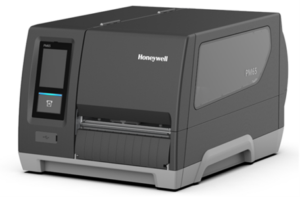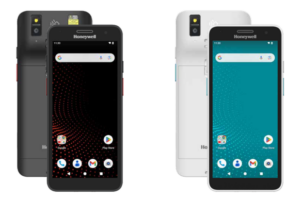
Why Warehouse Hardware Makes or Breaks Your NetSuite Implementation
 When companies invest in a Warehouse Management System (WMS), they nearly always focus on the software: feature sets, user interfaces, dashboards and integrations. Yet there is one vital element that too many projects overlook: the warehouse hardware. No matter how powerful and well designed your NetSuite-native WMS is, the reality is that your handheld scanners, label printers and mobile devices form the interface between your team and your system. If that hardware can’t keep up, your workflows stall, errors multiply and your system under-performs.
When companies invest in a Warehouse Management System (WMS), they nearly always focus on the software: feature sets, user interfaces, dashboards and integrations. Yet there is one vital element that too many projects overlook: the warehouse hardware. No matter how powerful and well designed your NetSuite-native WMS is, the reality is that your handheld scanners, label printers and mobile devices form the interface between your team and your system. If that hardware can’t keep up, your workflows stall, errors multiply and your system under-performs.
At Cloud Coders, we take a different approach. We build our WMS directly on NetSuite and we partner with Honeywell to deliver enterprise-grade hardware. Because we’re warehouse experts—not just salespeople—we know that handheld and stationary devices are not mere peripherals. They are the enablers of every warehouse transaction, and the wrong choice can undermine even the best software implementation.
The Hidden Costs of Inadequate Warehouse Hardware
Imagine a day in your warehouse: a team member attempts to scan a pallet of finished goods for dispatch, but the scanner misreads faded barcodes. They switch to a backup device, which struggles to connect to Wi-Fi in the far corner of the cold store. Meanwhile, the label printer jams and requires a technician call-out. Each of these small delays adds up to minutes of lost productivity—and minutes are money.
 Poor hardware leads to:
Poor hardware leads to:
- Picking errors and mis-shipments when scanners cannot read barcodes reliably
- Downtime while devices reboot, recharge or reconnect
- Increased training time as staff struggle with unfamiliar or clunky interfaces
- Unreliable data when offline scans fail to synchronise correctly
Your WMS software may have robust features for directed putaway, wave picking or real-time inventory visibility—but without the right hardware, those features remain theoretical.
Choosing the Right Devices for Your Environment
Not all warehouses are the same. A temperature-controlled food facility, a heavy-machinery parts distributor and a light-assembly electronics plant each place different demands on mobile hardware. At Cloud Coders, we start every implementation by assessing your environment:
- Temperature extremes: Can your scanners survive freezer conditions?
- Hazardous locations: Do you need intrinsically safe devices?
- Connectivity: Will devices need to operate offline in dead-zone aisles?
- Durability: How many drops, dust exposures or moisture events must they withstand?
- Battery life and charging: Will staff have time to recharge mid-shift or need hot-swap batteries?
By answering these questions in partnership with your operations team, we can recommend the right Honeywell hardware:
 Honeywell CK65 mobile computers, offering ultra-rugged design, long battery life, FlexRange scanning and optional 5G connectivity
Honeywell CK65 mobile computers, offering ultra-rugged design, long battery life, FlexRange scanning and optional 5G connectivity- Honeywell CT37 handhelds, balancing performance, disinfectant-ready design and Wi-Fi 6E for retail and light-manufacturing environments
- Honeywell PM45 industrial printers, delivering driverless high-speed label printing up to 6 inches wide, with Wi-Fi 6 and Bluetooth 5.2
- Honeywell PD45 compact printers, optimised for mobile printing and on-demand label generation
Each device comes with redundancy and service-contract options so you can maintain uptime.
Seamless Integration with NetSuite
Selecting the right hardware is only half the battle. For truly frictionless operation, your devices must integrate natively with your WMS. Cloud Coders’ NetSuite-native SuiteApp eliminates the need for middleware or bespoke APIs. We configure each scanner and printer to communicate directly with NetSuite—no additional software layers to update or maintain.
- Instant data sync: Scans are reflected in NetSuite in real time, even from offline locations once connectivity is restored
- Driverless printing: Printers receive label data directly from NetSuite via BarTender Printing for NetSuite, without server-based drivers
- Streamlined firmware updates: We use Mobile Device Management (MDM) tools to push patches and security updates centrally across your fleet
- Configurable workflows: Scanning prompts, label formats and error-handling routines are all defined within NetSuite, ensuring consistency
Because everything is unified within one ecosystem, you avoid data duplication, sync errors and the hidden cost of third-party maintenance.
Empowering Your Team Through Training and Support
Exceptional hardware and seamless integration create opportunity—but success still hinges on user adoption. We know that every hour your staff spend troubleshooting devices is an hour of lost throughput. That’s why Cloud Coders provides:
- Hands-on training: On-site sessions designed around your warehouse layout and workflows, enabling both full-time and casual staff to be productive within 15 minutes
- User guides and cheat-sheets: Role-based quick-reference materials for scanning, label printing and exception-handling
- 24/7 support: A local helpdesk of warehouse consultants who can diagnose device and software issues by remote access, or dispatch field engineers if needed
- Ongoing optimisation: Quarterly reviews to analyse device performance, scan success rates and battery health, ensuring your hardware strategy evolves with your operations
Our goal is not only to implement a system but to empower your team to operate at peak performance—day in, day out.
Investing in the right hardware is critical to unlocking the full value of your NetSuite WMS implementation. At Cloud Coders, we combine global best practices with local expertise to deliver a robust, reliable warehouse ecosystem—so your team can focus on moving goods, not fighting devices. Contact us today to discover how the right hardware strategy can transform your warehouse operations.
Frequently Asked Questions
1. Why is native integration with NetSuite so important for hardware?
Native integration eliminates third-party middleware, ensuring direct, real-time communication between devices and your ERP. This reduces synchronization errors and simplifies device management.
2. How do you decide which Honeywell hardware is right for my warehouse?
We conduct a detailed operational assessment—temperature, environment, connectivity and use cases—to match the optimal scanner and printer models with your specific requirements.
3. What level of support does Cloud Coders provide for hardware maintenance?
We offer 24/7 helpdesk support and can arrange on-site service contracts with Honeywell for rapid device replacement, firmware updates and preventative maintenance.
4. Can I run devices offline and still sync data later?
Yes. Our WMS and devices support offline scanning. All transactions queue locally and automatically synchronise with NetSuite once connectivity is restored, preserving data integrity.


